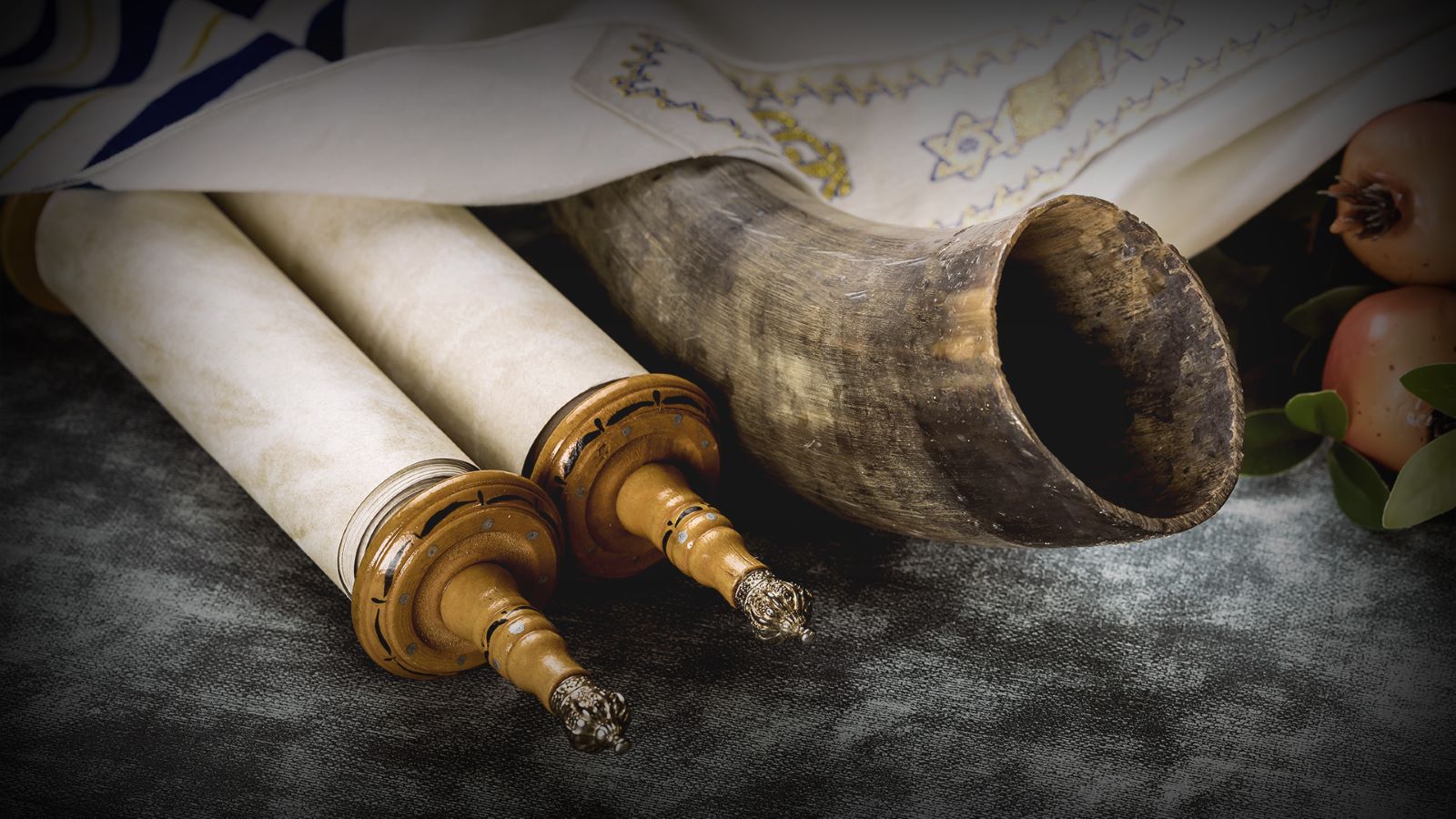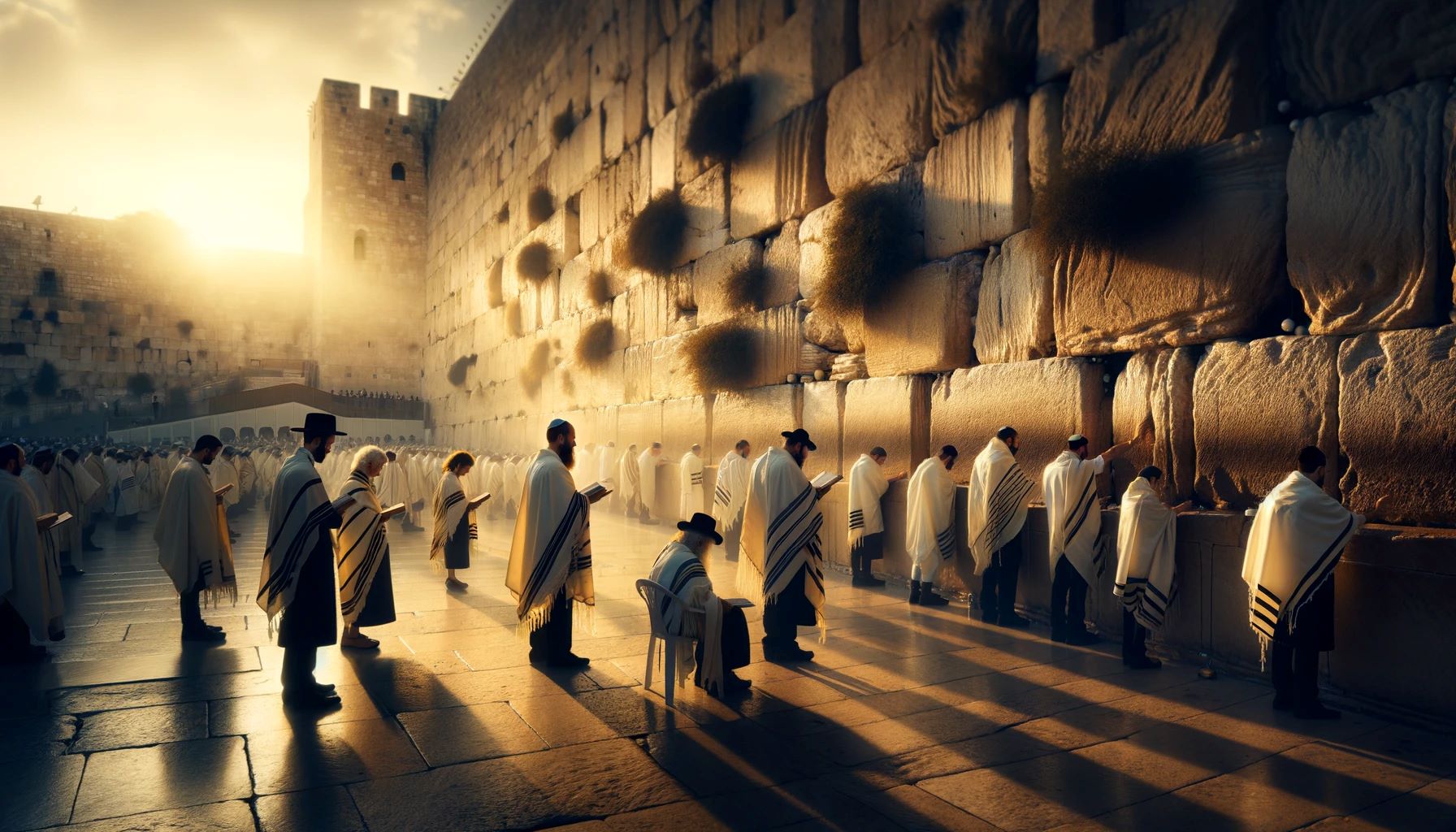Home>Theology and Spirituality>What Is The Difference Between Passover And The Day Of Atonement


Theology and Spirituality
What Is The Difference Between Passover And The Day Of Atonement
Published: February 10, 2024
Ericka Andersen, an editor at Christian.net, expertly merges digital strategy with content creation, focusing on faith and societal issues. Her communication skills enhance the platform's engaging narratives, fostering meaningful dialogue on belief's impact on society.
Discover the distinctions between Passover and the Day of Atonement in theology and spirituality. Explore the significance and practices of these sacred observances.
(Many of the links in this article redirect to a specific reviewed product. Your purchase of these products through affiliate links helps to generate commission for Christian.net, at no extra cost. Learn more)
Table of Contents
Introduction
The religious observances of Passover and the Day of Atonement hold profound significance in the Jewish faith, each representing distinct aspects of spiritual reflection and commemoration. Understanding the differences between these two sacred occasions is essential for gaining insight into the rich tapestry of Jewish traditions and beliefs. Both events are deeply rooted in history and theology, serving as pillars of faith and identity for the Jewish community.
Passover and the Day of Atonement, also known as Yom Kippur, are pivotal moments in the Jewish calendar, each carrying its own unique rituals and symbolism. While Passover celebrates the liberation of the Israelites from slavery in ancient Egypt, the Day of Atonement focuses on repentance and seeking forgiveness for transgressions. These observances are steeped in tradition and serve as poignant reminders of the enduring spiritual legacy of the Jewish people.
Understanding the historical context and spiritual significance of Passover and the Day of Atonement is essential for appreciating their enduring impact on Jewish culture and faith. As we delve into the nuances of these sacred observances, we gain a deeper understanding of the profound spiritual journey undertaken by the Jewish community throughout history.
Historical Background
The historical roots of Passover and the Day of Atonement are deeply intertwined with the narrative of the Jewish people, reflecting pivotal moments in their collective journey. Passover, known as Pesach in Hebrew, commemorates the liberation of the Israelites from slavery in ancient Egypt. This momentous event is chronicled in the biblical book of Exodus, where the Israelites, under the leadership of Moses, embarked on a transformative journey towards freedom. The narrative of Passover is a testament to the resilience and faith of the Jewish people, as they emerged from the oppressive yoke of bondage to embrace a future defined by liberty and spiritual fulfillment.
In contrast, the Day of Atonement, or Yom Kippur, holds a distinct historical significance as a day of repentance and reconciliation. Rooted in the biblical account found in the book of Leviticus, Yom Kippur represents a solemn occasion for seeking forgiveness and atonement for transgressions committed throughout the year. The rituals and prayers associated with Yom Kippur reflect a profound commitment to spiritual introspection and the pursuit of reconciliation with both the divine and fellow human beings.
Both Passover and the Day of Atonement are deeply embedded in the historical narrative of the Jewish people, serving as touchstones for the preservation of faith, resilience, and the enduring quest for spiritual renewal. These observances are not merely historical commemorations but living traditions that continue to shape the identity and ethos of the Jewish community.
The historical background of Passover and the Day of Atonement underscores the enduring legacy of the Jewish people, encapsulating their journey from oppression to liberation and from introspection to reconciliation. These sacred observances serve as a testament to the indomitable spirit and unwavering faith that have sustained the Jewish community throughout the ages.
Significance of Passover
Passover, or Pesach, occupies a central place in Jewish tradition, symbolizing the foundational narrative of liberation and renewal. At its core, Passover commemorates the exodus of the Israelites from Egypt, marking a pivotal moment in the history of the Jewish people. The significance of Passover extends far beyond a historical event; it embodies the enduring themes of freedom, faith, and spiritual redemption.
The observance of Passover is characterized by the Seder, a ceremonial meal replete with symbolic foods and rituals that serve as a vivid retelling of the exodus narrative. The retelling of the story of liberation during the Seder serves as a powerful reminder of the indomitable spirit of the Jewish people and the divine intervention that paved the way for their deliverance.
Moreover, Passover serves as a time for introspection and renewal, inviting individuals to reflect on personal and collective journeys towards freedom and spiritual fulfillment. The rituals associated with Passover, including the removal of leavened bread (chametz) from households and the consumption of unleavened bread (matzah), underscore the transformative nature of this observance. The act of removing chametz symbolizes the casting off of spiritual impurities and embracing a path of purity and renewal.
Furthermore, Passover fosters a sense of communal solidarity, as families and communities come together to partake in the Seder and share in the collective retelling of the exodus narrative. This communal aspect reinforces the interconnectedness of the Jewish people and underscores the enduring legacy of faith and perseverance.
In essence, the significance of Passover lies in its multifaceted role as a commemoration of historical liberation, a catalyst for spiritual introspection, and a celebration of communal unity. This observance serves as a poignant reminder of the enduring legacy of the Jewish people and their unwavering commitment to freedom, faith, and renewal.
Significance of the Day of Atonement
The Day of Atonement, known as Yom Kippur in Hebrew, holds profound significance in the Jewish faith as a day of repentance, introspection, and reconciliation. It stands as the holiest day in the Jewish calendar, marking a solemn period of spiritual introspection and seeking forgiveness for transgressions. Yom Kippur represents a sacred opportunity for individuals to engage in deep introspection, acknowledging their shortcomings and seeking reconciliation with both the divine and fellow human beings.
The observance of Yom Kippur is characterized by a day-long fast, abstaining from food and drink as a symbol of spiritual purification and devotion. This act of self-denial serves as a powerful expression of contrition and a solemn commitment to seeking divine forgiveness. The period of fasting is accompanied by intensive prayer and reflection, as individuals engage in soul-searching and seek to mend fractured relationships, both with others and with the divine.
Moreover, Yom Kippur underscores the profound concept of teshuvah, or repentance, emphasizing the transformative power of seeking forgiveness and making amends. The rituals and prayers associated with Yom Kippur provide a framework for individuals to engage in the process of teshuvah, acknowledging their mistakes, expressing remorse, and resolving to chart a path of spiritual renewal.
The significance of Yom Kippur extends beyond individual introspection, encompassing the collective responsibility of the Jewish community to strive for reconciliation and ethical renewal. The communal observance of Yom Kippur fosters a sense of shared accountability and a commitment to upholding ethical values, fostering a society characterized by compassion, justice, and empathy.
In essence, the Day of Atonement holds profound significance as a transformative period of seeking forgiveness, engaging in introspection, and embracing the profound concept of teshuvah. Yom Kippur serves as a poignant reminder of the enduring capacity for spiritual renewal and the timeless pursuit of reconciliation and ethical integrity within the Jewish tradition.
Key Differences
The key differences between Passover and the Day of Atonement are rooted in their distinct theological and ritualistic significance within the Jewish faith. While both observances hold profound spiritual importance, they embody contrasting themes and serve unique purposes within the religious calendar.
Passover, as a commemoration of the exodus from Egypt, symbolizes the triumph of liberation and the transformative journey from oppression to freedom. The rituals associated with Passover, particularly the Seder meal, emphasize the retelling of the exodus narrative and the celebration of newfound liberty. The act of removing leavened bread (chametz) from households underscores the symbolic casting off of spiritual impurities, paving the way for spiritual renewal and purification. Passover serves as a time for communal rejoicing, reflecting on the resilience of the Jewish people and the divine intervention that led to their deliverance.
In contrast, the Day of Atonement, or Yom Kippur, represents a solemn period of introspection, repentance, and seeking forgiveness. The rituals of Yom Kippur, including the day-long fast and intensive prayer, underscore the profound commitment to spiritual purification and reconciliation. Yom Kippur serves as a time for individuals to engage in deep introspection, acknowledging their shortcomings and seeking reconciliation with both the divine and fellow human beings. The emphasis on teshuvah, or repentance, highlights the transformative power of seeking forgiveness and making amends, both on a personal and communal level.
Furthermore, the temporal placement of these observances within the Jewish calendar underscores their distinct roles. Passover occurs in the spring, marking a time of renewal and the celebration of historical liberation. It serves as a joyous occasion, fostering a sense of communal unity and gratitude for the blessings of freedom. On the other hand, Yom Kippur occurs in the fall, signifying a period of introspection and spiritual reckoning as the year draws to a close. It serves as a solemn and introspective time, prompting individuals to engage in deep self-reflection and seek reconciliation before the onset of a new year.
In essence, the key differences between Passover and the Day of Atonement lie in their thematic focus, ritualistic expressions, and temporal placement within the Jewish calendar. While Passover celebrates historical liberation and spiritual renewal, Yom Kippur emphasizes introspection, repentance, and the pursuit of reconciliation, embodying the multifaceted journey of faith and spiritual growth within the Jewish tradition.
Conclusion
In conclusion, the observances of Passover and the Day of Atonement stand as profound pillars of the Jewish faith, each encapsulating unique facets of historical commemoration, spiritual introspection, and communal solidarity. Passover, with its vibrant celebration of liberation and renewal, serves as a testament to the enduring resilience and faith of the Jewish people. The retelling of the exodus narrative during the Seder meal and the symbolic removal of leavened bread underscore the transformative journey from oppression to freedom, fostering a sense of communal rejoicing and gratitude for the blessings of liberty.
On the other hand, the Day of Atonement, or Yom Kippur, embodies a solemn period of seeking forgiveness, engaging in deep introspection, and embracing the transformative power of teshuvah. The rituals of fasting, intensive prayer, and the collective pursuit of reconciliation underscore the profound commitment to spiritual purification and ethical renewal. Yom Kippur serves as a poignant reminder of the enduring capacity for spiritual growth and the timeless pursuit of reconciliation and ethical integrity within the Jewish tradition.
The key differences between these observances reflect the multifaceted journey of faith and spiritual growth within the Jewish tradition. While Passover celebrates historical liberation and spiritual renewal, Yom Kippur emphasizes introspection, repentance, and the pursuit of reconciliation. The temporal placement of these observances within the Jewish calendar further underscores their distinct roles, with Passover marking a time of renewal and celebration, and Yom Kippur signifying a period of introspection and spiritual reckoning.
Ultimately, the observances of Passover and the Day of Atonement serve as poignant reminders of the enduring legacy of the Jewish people, encapsulating their journey from oppression to liberation and from introspection to reconciliation. These sacred traditions continue to shape the identity and ethos of the Jewish community, fostering a profound sense of faith, resilience, and communal solidarity. As we reflect on the significance of Passover and the Day of Atonement, we gain a deeper understanding of the enduring spiritual legacy that continues to inspire and uplift individuals and communities around the world.














